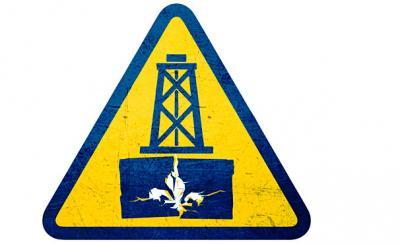Quebecers are particularly hostile toward the development of natural gas, but this aversion is driven less by 'not in my backyard' (NIMBY) attitudes than 'not in anyone's backyard (NIABY), according to a comparative study of 2,500 Quebecers and Americans conducted by Éric Montpetit and Erick Lachapelle of the University of Montreal's Department of Political Science.
The study wanted to find out why Quebecers oppose the development of natural gas so fiercely, since it is far cleaner than coal and obviously does not have the political risk of nuclear power.
According to the findings, the opposition is political rather than scientific. Just like in America.
"The study was conducted among 1,500 Quebec respondents, a large proportion of whom were sampled from the Montérégie region, where there are shale gas development projects, and 1,000 respondents from two U.S. states, Michigan and Pennsylvania," Montpetit explained. "Our findings showed that opposition is much stronger in Quebec than in the United States, and this is true across the province, regardless of where one lives. The main reason is not related to a lack of information or proximity to existing wells. Their aversion is rather due to the importance of political values that shape the public's understanding of issues more generally."
They rationalize that two values cause acceptance (or not) of science findings showing benefits of natural gas: egalitarianism and individualism. Egalitarians have high expectations regarding social justice and equality between citizens, while individualists value personal success. "We found that egalitarians are more likely to perceive risks related to hydraulic fracturing methods used to extract gas from shale, while individualists are more likely to perceive the benefits," Montpetit said. "This is true in Quebec and the United States. That is to say, Quebecers are no less rational in their perceptions of the issue. The difference is that there are more egalitarians here than south of the border. This explains why opposition to shale gas is so strong in Quebec compared to what we find in the United States."

For people of a particular political mindset, no science finding on safety and environmental benefit is going to change their minds. This is similar to other science issues, such as the anti-vaccine and anti-GMO movements. Credit: University of Montreal
The way journalists talk about the issues related to natural gas has also played a role in perceptions. "There has been little coverage in the media about the fact that Quebecers are large gas consumers and that the gas is currently imported from Alberta. Developing this sector would allow us to be more independent in terms of energy. It is an important argument that has been mostly ignored," Montpetit said. "Much discussion has focused on large multinationals from western Canada or abroad who come to explore and pay little in terms of royalities to the Quebec government." This way of talking about shale gas resonates with egalitarian values. Egalitarians are sensitive to this type of discourse, which refers to issues of social justice and equality. "Egalitarians say 'we pay for the cost of extraction, and the profits go into the pockets of big corporations, who are often from outside the province!' This causes resentment, causing them to be more likely to be concerned about environmental risks."
They believe that new information from a credible source would likely change opinions in the United States and Quebec - but the people they are talking about don't regard anyone as credible if that source discusses science. The only scientists that are credible are the ones saying natural gas is 'tar' and will ruin the environment.
Opposition in Quebec toward natural gas extraction is currently at 70% - even though they use a lot of it. That did not occur because credible sources were not available. It occurred because people frame their science beliefs through their political ones, just as they always have, in Canada and in the US and Europe, all across the political spectrum.





Comments